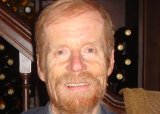 “We want to improve the attitudes of nurses towards their patients.” This call from senior nurses at an Educating of Educators course in Ramallah (a Palestinian city in the central West Bank) could have been echoed in any country in the world, but these nurses are determined to bring about change and have the capacity to do so.
“We want to improve the attitudes of nurses towards their patients.” This call from senior nurses at an Educating of Educators course in Ramallah (a Palestinian city in the central West Bank) could have been echoed in any country in the world, but these nurses are determined to bring about change and have the capacity to do so.
Teaching about attitude change is never easy and we described a number of tools including role modelling, using a buzz group, project work in a community, using a debate format, role play, and the use of a portfolio in recording reflective learning. The senior nurses, who included deans of nursing schools and university departments in Palestine, were enthusiastic participants in a debate and a role play session.
How could two paediatricians from the Royal College of Paediatrics and Child Health (RCPCH) be engaged in a teaching methods course for nurses? We have described our college programme in previous blogs and this curriculum workshop was a spin off, organised by Juzoor with whom we work closely on our teaching programme which is now under Al Quds University.
Our 10 students (a mixture of doctors in primary care, hospital trainees, and primary care nurses) are approaching the end of the two year MA course and we attended the module teaching day on disability to hear their presentation of cases, which varied from neurodevelopmental disorders to autism spectrum and visual impairment.
As in many middle income countries, disability in Palestine is associated with stigma and many disabled children are not enabled to attend school; the mother is blamed and divorce is a frequent outcome. The high prevalence of consanguinity means that genetic causes are common and of course preventable. The RCPCH is currently planning a new programme around disability assessment and management, which will extend to Gaza, as well as the West Bank.
And, not surprisingly, Gaza was a major topic for discussion only a month after a ceasefire ended the awful war in that tiny enclave. The nurse with whom we were working on the curriculum workshop had bravely volunteered for a week at Shifa Hospital during the war and returned deeply traumatised by what she saw.
We learned from a UN report that 18 000 housing units were destroyed by Israeli bombing, leaving 108 000 people homeless; that 450 000 people were unable to access municipal water owing to damage or low pressure; 17 out of 32 hospitals were damaged and six closed down as a result. Out of 97 primary health centres monitored for damage and closures, 45 reported damage and 17 were closed. Four are completely destroyed. Sixteen ambulances were damaged, and 83 health personnel injured, 21 health personnel died. Tragically, a disability rehabilitation centre was among the health facilities destroyed in Gaza
As we leave after another successful visit to this resourceful but suffering country, we wonder when the violence will stop and the world step in to protect the children of both Gaza and the West Bank, and relieve the grim occupation.
Tony Waterston is a retired paediatrician in Newcastle upon Tyne, working mainly in the community with long term conditions, disability, child abuse, and social and mental health concerns. His interests are in child public health, children’s rights, and global child health, and he leads the RCPCH teaching programme in the occupied Palestinian territories.
Competing interests: I lead the RCPCH Palestinian MA programme.
Jean Bowyer is a paediatrician with a particular interest in neonatology, including neonatal cardiology and neurodevelopmental follow-up, and she was for more than twenty years a consultant in the UK. She has previously worked in Lebanon and Saudi Arabia, and worked with children with HIV in Kenya. Teaching paediatrics has been a major interest in all these posts. For most of last year, she has worked in Uganda and continued as senior tutor for the Masters in Child health in Palestine.
Competing interests: Nothing further to declare.
